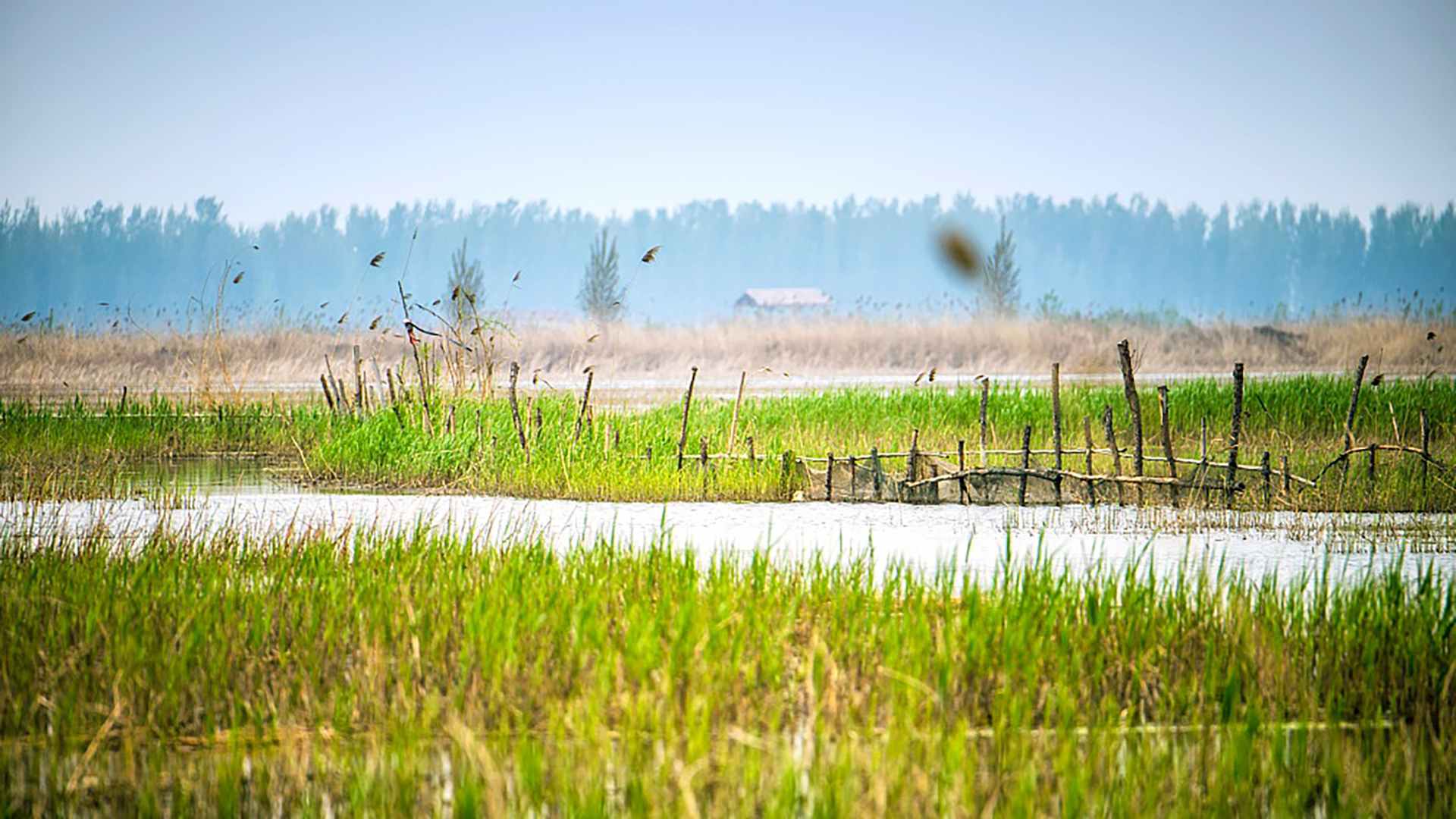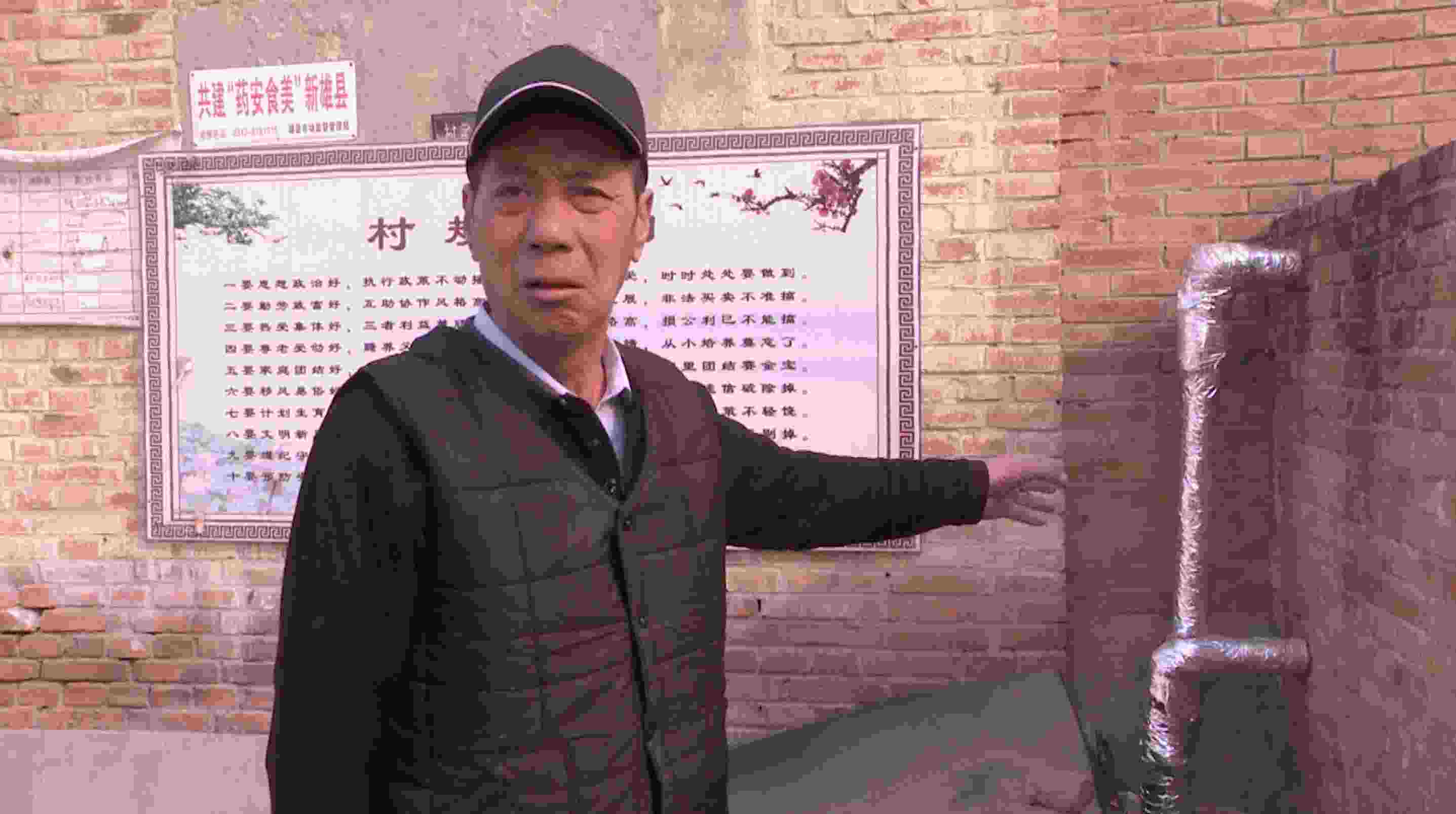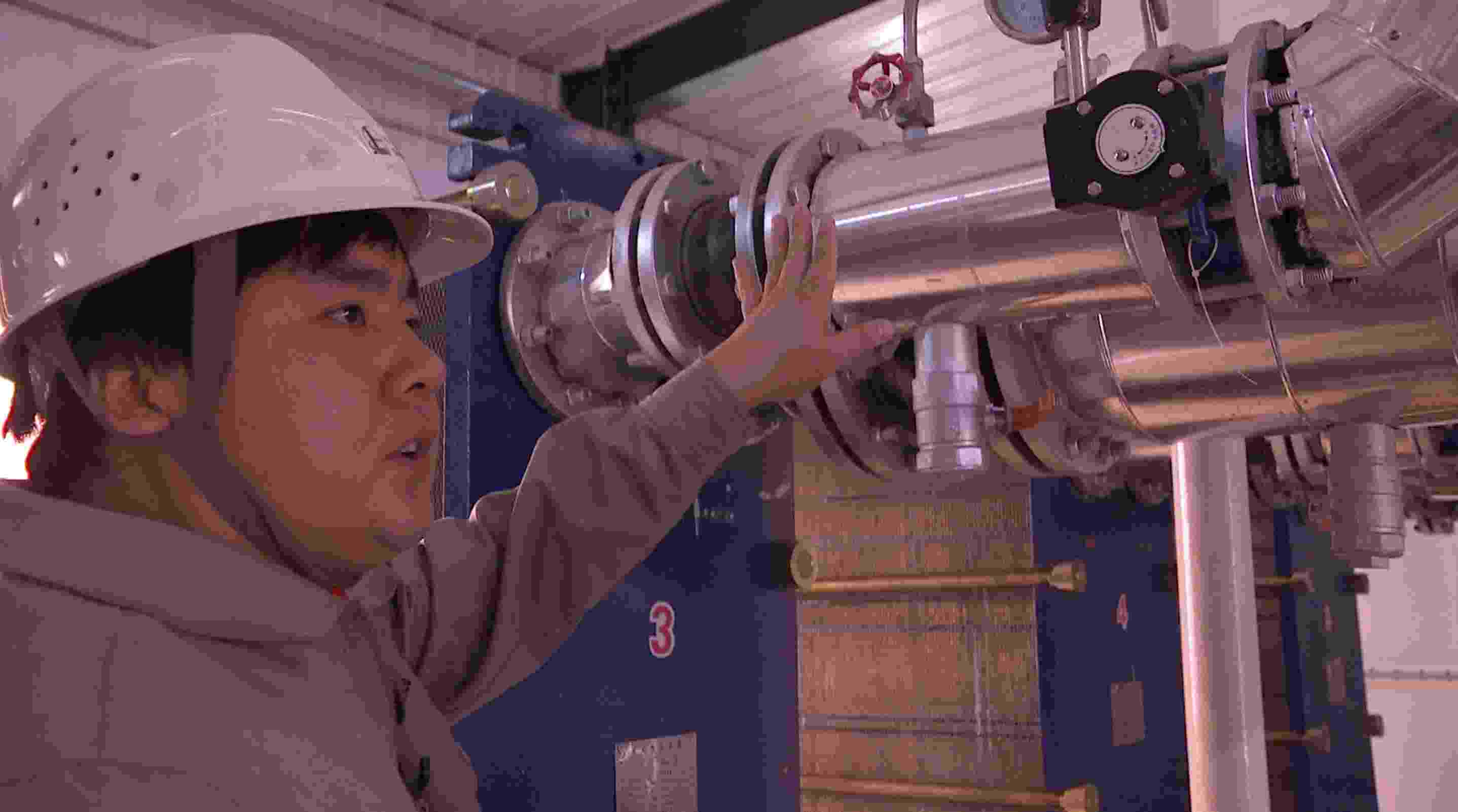
Environment
17:20, 10-Mar-2019
Fighting air pollution in rural China
By Ning Hong
02:30

Geothermal energy is cooling down energy costs in northern China – even as it heats residents' homes. An increasing number of people there now use geothermal energy, replacing coal for heating in winter.
In Zhongying Village, China's Hebei Province, government-backed projects have connected every home to a pipe that supplies hot water for heating. The old chimneys that once pushed out smoke from coal have gone cold. However, the temperatures inside the homes are even higher than before.

No smoke rising out of old chimneys. /CGTN
No smoke rising out of old chimneys. /CGTN
"We used to use coal, and it often smoked the wall," said Guo Chunxi, a villager, "Now the room temperature can reach 25 degrees Celsius now, and has been at least 18 degrees Celsius throughout this winter."

Guo Chunxi, a villager of Zhongying, shows the pipe that brings geothermal heat to his house. /CGTN
Guo Chunxi, a villager of Zhongying, shows the pipe that brings geothermal heat to his house. /CGTN
A geothermal company has signed contracts with residents. The company started to provide heating service ten years ago; it is only recently that the pipelines extended to the rural area.
Li Kunkun is in charge of the heating projects, and he finds that room temperatures of many local villagers used to be substandard. "Houses in the rural area are large and often poorly insulated. Burning coal could only get the room temperature to 13 degrees Celsius on average. But we can get the temperature to 20 degrees Celcius on average," said Li.

Li Kunkun is in charge of this heat exchange station. /CGTN
Li Kunkun is in charge of this heat exchange station. /CGTN
Eleven villages in Xiongan now use geothermal energy for heating, cutting 150,000 tons of coal consumption. There are still over 500 million people living in China's rural areas.
Research supported by the Ministry of Ecology and Environment shows that efforts to replace scattered coal consumption with clean energy such as gas and electricity have been useful in reducing air pollutants.
The energy use of one household may not seem that important. However, taken as a whole, it can play a big part in reforming China's energy structure.
Geothermal energy is relatively new to Chinese consumers. However, it poses unique features and is an ideal solution for heating in winter.
Here is how it works: First, It pumps the hot groundwater up from nearly a thousand meters underground. Then it uses heat exchangers to extract the heat. While the underground water is sending back, the heat it brings with it is carried to households through pipes. Most of the operation is automatic and closely monitored at the control center.

Checking temperature. /CGTN
Checking temperature. /CGTN
"Once built, the geothermal wells and heat exchange stations cost less in maintenance. That will reduce the burden on residents, and we send every drop of underground water back, to minimize interference with underground geological conditions, and to reach sustainable exploration," said Liu Junxia, deputy chief geologist of Sinopec Star, a company that has built geothermal wells in 13 provinces in China. These geothermal wells could help to cut one and a half million tons of coal consumption a year.
Geothermal energy resources are found in many places in China. In the Xiongan New Area, the storage is abundant and more villages will enjoy such clean energy in the future.
(Top image via VCG)
(If you want to contribute and have specific expertise, please contact us at nature@cgtn.com.)

SITEMAP
Copyright © 2018 CGTN. Beijing ICP prepared NO.16065310-3
Copyright © 2018 CGTN. Beijing ICP prepared NO.16065310-3